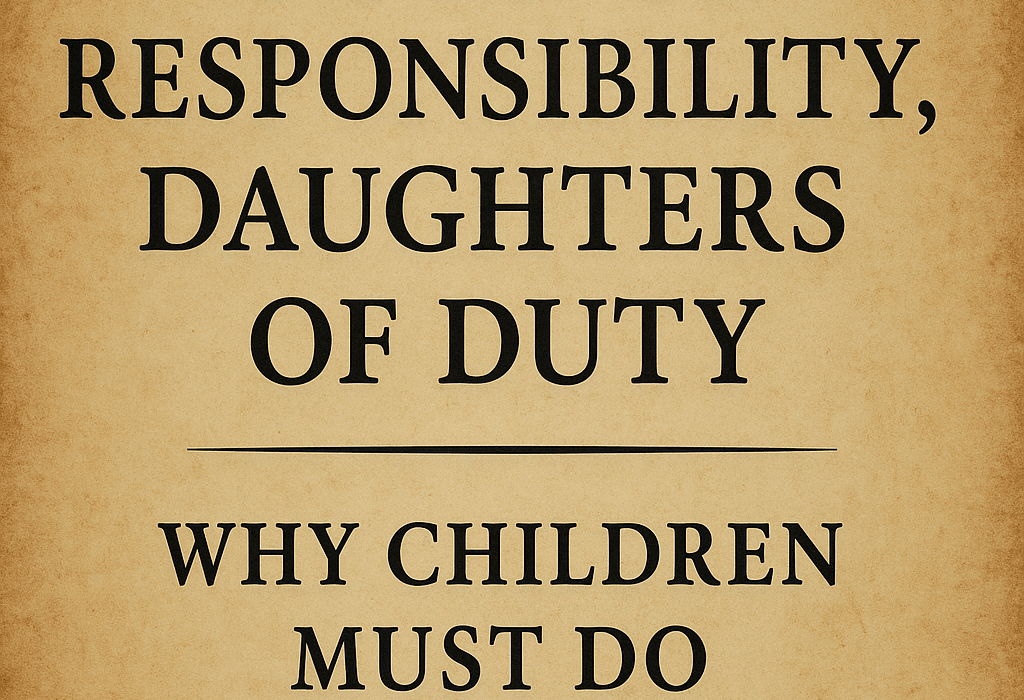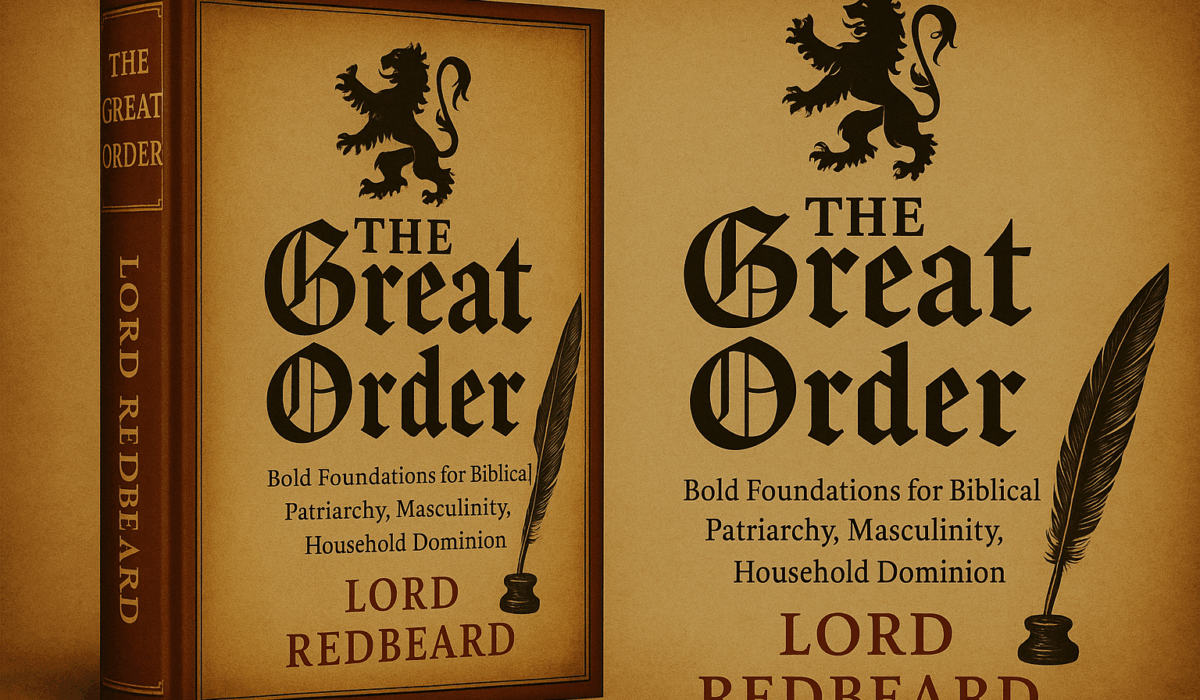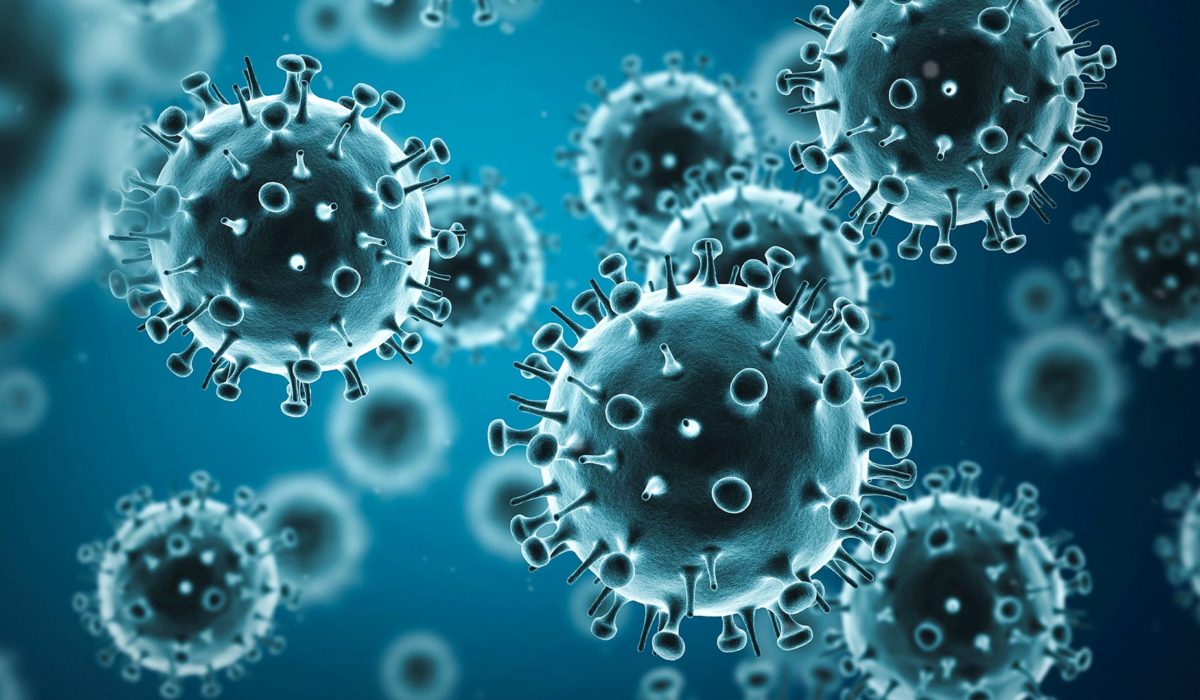In the divine hierarchy established by God, the man is the builder, the establisher, the governor. He goes out to war, to work, to wrest dominion from the earth by the sweat of his brow. He lays foundations: spiritually, economically, and physically. The woman, by contrast, is called to maintain and enforce the order her husband builds. Her task is not to innovate her own laws or construct her own dominion, but to be a wise and faithful steward of the man’s household and headship.
This is not demeaning—it is glorifying. The wife, when she faithfully fulfills her calling, sustains and beautifies the kingdom entrusted to her. She is like the moon reflecting the light of the sun—she governs the night with the authority delegated to her. She is the queen, upholding the rule of the king.
Let us examine this sacred role through Scripture, through the wisdom of our forefathers, and through the eyes of common sense, now so rare in a society poisoned by egalitarian rebellion.
I. Biblical Foundations: Keeper of the Home
The most fundamental and oft-repeated command given to the wife in Scripture is to be a keeper at home:
“That they may teach the young women to be sober, to love their husbands, to love their children, to be discreet, chaste, keepers at home, good, obedient to their own husbands, that the word of God be not blasphemed.”
—Titus 2:4–5
The Greek word used for “keeper at home” (οἰκουργός) carries a robust meaning—“a guard or warden of the house.” Not merely a passive occupant, the wife is an active maintainer and enforcer of the household dominion. She is a steward, a governor under authority, a domestic magistrate who executes her husband’s law and vision within the sphere of their home.
The man builds; the woman maintains.
The man provides; the woman preserves.
The man establishes order; the woman enforces it.
This is her honor and her duty.
II. The Garden Pattern: From Eden to Household
The pattern of dominion and maintenance is laid down at the very beginning in the Garden of Eden. God placed Adam in the garden “to dress it and to keep it” (Genesis 2:15). After the creation of Eve, she was brought to Adam not to found her own garden, but to help him in the work God had given him. She was bone of his bones and flesh of his flesh—created for the man (1 Corinthians 11:9)—to serve, guard, beautify, and multiply what had already been given.
The fall itself occurred because Eve stepped outside her lane. She began to entertain a vision and decision-making authority apart from her husband’s rule. She failed in her duty to uphold the order given by God through Adam, and chaos ensued. Her punishment included a prophetic return to proper headship:
“Thy desire shall be to thy husband, and he shall rule over thee.”
—Genesis 3:16
Her redemption would not come through autonomy but through faithful childbearing and submission (1 Timothy 2:15).
III. Enforcing the Law of the Household
One of the gravest errors of modern women is the belief that the home is their “own domain,” independent from the oversight and rule of their husbands. This is false. The husband is head of the wife (Ephesians 5:23), and that headship extends to every sphere, including the home, rules, routines, budget, diet, and child discipline.
The wife is to enforce the laws her husband has set in place. This includes:
- Bedtimes for children
- Rules of modesty and dress
- Household cleanliness and standards of presentation
- Sabbath and feast observance
- Media access and content restrictions
- Chores and responsibilities
- Hospitality and guest boundaries
- Dietary rules/guidelines
If the husband has declared that no television shall be watched after dinner, the wife is not free to change that. If he has ruled that certain behaviors warrant discipline, she must not turn a blind eye. She must uphold his word, not undermine it. To do otherwise is to act as a usurper within the gates of his authority.
This is seen clearly in the book of Proverbs:
“The wise woman buildeth her house: but the foolish plucketh it down with her hands.”
—Proverbs 14:1
What is it that tears down a house? Rebellion against the husband’s law. Disregard for his vision. Neglect of his provision. Laziness. Gossip. Complaining. Softness with the children when firmness is required. These are not minor infractions; they are betrayals of covenant duty.
IV. Dominion by Delegation: The Stewardship of All That Is Entrusted
The godly woman is not a ruler in her own right. She is a steward, a high-ranking servant within the covenant household, entrusted with dominion that is delegated, not innate. What she oversees is not her possession, but her husband’s estate. What she manages is not her own empire, but his dominion.
This principle must be understood deeply: everything a husband gives to his wife is a sacred trust. She is not the owner of the home, the furnishings, the land, or the provision—she is the keeper, the preserver, the multiplier of that which was delivered to her by her head.
The faithful wife recognizes that to waste what her husband has built is to dishonor and disrespect him, and in so doing, to dishonor Christ, who commands her submission. It is likened to physically slapping him in the face. Her work is not freelance. Her hands are not idle. Her authority is not self-declared. Her role is sacred.
Let us now examine the breadth of her stewardship.
1. The Home: Fortress and Sanctuary
The home is the outward expression of a man’s inward order. It is the sanctuary where his rule is made manifest, where law becomes culture, where peace dwells and truth is taught.
The wife is to guard and maintain the home with holy vigilance. Cleanliness, structure, beauty, and functionality are not luxuries, they are marks of honor. Disorder in the home reflects disorder in the woman. When a wife allows clutter, laziness, decay, or distraction to take root, she is not just being careless, she is allowing the enemy within the gates.
Every room, every corner, every closet is a reflection of the stewardship of the woman. She is called to maintain the home not as a showpiece for outsiders, but as a place of ordered dominion where her husband’s rule is made visible.
“She looketh well to the ways of her household, and eateth not the bread of idleness.”
—Proverbs 31:27
2. Furnishings and Garments: Order in the Details
The beds her husband purchased are to be made. The tables he provided are to be cleared and set. The furniture he supplied is to be cared for with dignity—not stained, destroyed, or buried beneath toys and debris. This is not about materialism—it is about respect.
Likewise, the clothing he provides for his wife and children is to be maintained with diligence. Torn seams should be mended. Laundry should not pile to the ceiling. Stains should be addressed. Shoes should be clean and placed in order.
The Proverbs 31 woman is not a passive consumer, she is a craftswoman, a caretaker, a provider of beauty. Her efforts in these things express her gratitude to God and to her husband.
“She maketh herself coverings of tapestry; her clothing is silk and purple.”
—Proverbs 31:22
3. Garden and Grounds: Dominion Over the Earth
The garden and yard, however large or small—are part of the man’s dominion. Whether a few raised beds or a broad acreage, they are under the wife’s stewardship. A weed-choked garden and a trash-littered yard dishonor the name of the man who pays for that land.
The godly woman will ensure the grass is cut, the flowers maintained, the tools cared for, the trash bins orderly, and the land not neglected. She teaches her children that even the appearance of the home’s grounds reflects the glory of their father.
“She considereth a field, and buyeth it: with the fruit of her hands she planteth a vineyard.”
—Proverbs 31:16
This is not just busy work. It is visible dominion. It is faithfulness in the little things.
4. Vehicles, Tools, and Implements: Respecting the Man’s Work
The car her husband bought for the family is not a garbage heap. The truck he uses for work is not a playground. The tools he stores in the garage are not toys. Every item her husband has earned by the sweat of his brow must be treated with reverence.
She should ensure that oil changes happen on schedule, that children do not slam car doors or mishandle equipment, that tools are returned to their place, and that vehicles remain clean and ready for use.
A faithful wife will train the children to handle these things properly and speak of them with respect. Why? Because these items are extensions of the man’s work. To lack respect for the items acquired by the husband is to dishonor.
5. Finances and Household Resources: Guarding the Treasury
Every dollar her husband earns represents time away from home, risk, sweat, and toil. The faithful wife does not squander this. She does not waste household money on trinkets, convenience foods, unneeded luxuries, or vanity. She keeps records, stretches each dollar, plans meals, compares prices, shows accountability and multiplies what is given.
“The heart of her husband doth safely trust in her, so that he shall have no need of spoil.”
—Proverbs 31:11
In the biblical order, the husband is the provider, the household king; the wife is the treasurer, the household steward. She may not generate the income, but she governs its use. She does not spend frivolously. She spends righteously.
She is the Proverbs 31 woman—not chasing careers, but making her husband’s name great in the gates by her industry and faithfulness.
V. Historical Witnesses: Women of Order and Excellence
The vision of a woman as steward, guardian, and enforcer of her husband’s dominion is not merely a biblical ideal—it is a pattern consistently affirmed in the lives of godly women throughout history. In eras of strength, women embraced this sacred charge and preserved the household economy, the moral law, and domestic order with diligence and reverence. Their names are not always remembered, but the civilizations they upheld were built upon their faithfulness.
1. The Matriarchs of Scripture
From Sarah to Ruth, from Hannah to Elizabeth, the holy women of old built nothing of their own name, but magnified the names of their husbands and sons through obedience and faithful stewardship.
Sarah, though married to the great patriarch Abraham, was not known for public exploits but for reverence and obedience:
“Even as Sara obeyed Abraham, calling him lord: whose daughters ye are, as long as ye do well…”
—1 Peter 3:6
Rebekah, Rachel, and Leah each submitted to the headship of the men appointed to them and managed the flocks, tents, and children with steadfastness, bearing the future of Israel on their backs.
Hannah’s sacrifice of Samuel was not a detachment from motherhood—it was a fulfillment of her vow to uphold the household’s devotion to God, giving her son back to the Lord in accordance with her husband’s leadership.
2. The Noble Wives of the Reformation
In the time of the Protestant Reformation, when men were risking their lives to preach the gospel and reform the Church, their wives were not idle. They built homes, taught children, cultivated gardens, welcomed persecuted believers, and enforced household law without wavering.
Katharina von Bora, the wife of Martin Luther, managed a complex estate, fed dozens daily, and kept order in a home that was often a refuge for students, refugees, and reformers. Luther affectionately called her “My Lord Kate,” not because she ruled him, but because she ruled the home well under his authority.
She did not seek to lead the Reformation in the public square. She ruled her portion of the kingdom—faithfully maintaining what Luther, her head, had built. That was her glory.
3. The Colonial and Pioneer Women of America
In early America, the homestead was the heart of civilization. Men cleared the land, raised barns, and established farms, but it was the wives who turned rough wood and stone into sanctuaries of peace and law.
These women enforced strict order in their homes: keeping meals on schedule, teaching catechisms, disciplining children, managing livestock, storing food, and maintaining cleanliness even under harsh frontier conditions. Their husbands rode for supplies, went to war, or labored in the fields—often for weeks—trusting that all would be in order upon return.
They were not seeking escape through feminism or employment in town. They had dominion to keep. A fire to tend. A people to govern in the name of their husband and unto the Lord!
4. Victorian and Edwardian Homemakers
Even in the great cities of England and America, Christian wives understood that the home was a moral and spiritual realm to be governed under the man’s headship. Victorian households were marked by schedule, virtue, modesty, and order. The lady of the house enforced the rhythm of the day—prayers, meals, instruction, cleanliness, and decorum.
She was a steward of appearances and behavior, ensuring that what her husband established—socially, financially, and religiously, was preserved, reinforced, and passed on.
The collapse of such homes in the 20th century was not accidental. It came when women left the post of keeper and began to clamor for equal rulership, collapsing the hierarchy that had upheld generations of Christian family strength.
VI. Modern Rebellion and the Decay of Stewardship
The enemy of order is rebellion, and rebellion now wears the mask of liberation. Modernity has sold women a bitter lie: that to serve under a man’s authority is slavery, and that to preserve his house is demeaning. The consequence? A generation of women who despise the very work for which they were created—and homes that lie in ruins because of it.
The home has been traded for the cubicle, the cradle for the boardroom, the garden for gossip, and the order of the husband for the doctrines of feminism. Where once women built multigenerational households under patriarchal authority, now they chase paychecks and political power, leaving the home desolate.
The average woman today cannot sew, cook from scratch, manage a budget, discipline her children, and cannot submit to her husband’s law without complaint. She has been trained to scorn these things—to see the dominion of the household as a prison rather than a throne.
“Because that, when they knew God, they glorified him not as God… Professing themselves to be wise, they became fools.”
—Romans 1:21–22
Women who abandon their post as keepers of the home do not merely create messy houses, they dismantle civilizations. The household is the smallest unit of God’s kingdom on earth. When it is neglected, the Church is weakened, the nation is corrupted, and the next generation is lost.
The spirit of rebellion has consequences:
- Children are undisciplined and defiant.
- Homes are disordered, chaotic, and joyless.
- Husbands are dishonored and treated as equals—or worse, as burdens.
- Finances spiral into debt and dysfunction.
- Generations forget the law of God.
This is not a theoretical problem. It is the daily, lived reality of most families in the West. And the solution is not another conference, podcast, or Instagram reel. The solution is repentance. The solution is a return to The Great Order—where men lead in righteousness and women submit in reverent stewardship.
There is no neutral ground. A woman is either upholding her husband’s dominion or undermining it. She is either honoring the law of the house or sowing confusion within it. There is no such thing as harmless rebellion.
Let the women of God renounce the rebellion of our age. Let them cast down the idols of feminism, egalitarianism, and careerism. Let them return home, not as slaves, but as stewards. Not as doormats, but as queens under the crown. And let them raise daughters who do the same.
“Let the aged women… teach the young women… to be sober, to love their husbands, to love their children, to be discreet, chaste, keepers at home… that the word of God be not blasphemed.”
—Titus 2:3–5
The world blasphemes when Christian women abandon their role. But heaven rejoices when the household is ordered according to God’s design.
VII. Let Her Reign: The Glory of the Faithful Steward
The faithful wife is not a background figure in her husband’s dominion—she is its heartbeat. She reigns not by usurping his authority, but by glorifying it. She extends his law. She enforces his order. She multiplies his provision. And in doing so, she magnifies her own glory, for “a virtuous woman is a crown to her husband” (Proverbs 12:4).
Let no woman shrink from this call. Let no wife despise her sacred role. For the one who maintains what her husband has built is not a servant in chains, but a queen entrusted with treasure.
She reigns when she:
- Keeps the home clean, orderly, and peaceful, reflecting her husband’s wisdom.
- Disciplines the children with consistency, upholding his authority.
- Guards his time, his name, and his resources with watchful diligence.
- Respects the furnishings, land, vehicles, and tools he has earned with honor.
- Upholds the laws of the household—not with pride, but with obedience.
This is her crown. This is her dominion. This is her offering of praise—not with lips only, but with labor. Not in theory, but in the daily practice of keeping, tending, multiplying, and glorifying what her husband has entrusted to her.
“Every wise woman buildeth her house: but the foolish plucketh it down with her hands.”
—Proverbs 14:1
Let her rise in the strength of the Lord. Let her reject the slanders of a godless age. Let her take joy in her husband’s approval, in her children’s obedience, and in the fruit of her hands. Her work is not small, it is the work of empires, the labor of queens.
Let her speak to her daughters not of careers and competition, but of covenant and stewardship. Let her show them that the path of glory is found in obedience. That the house is not a trap, but a throne. That to be a keeper at home is not to hide from the world, but to reshape it through generational dominion.
And when the world mocks, let her laugh. When fools scoff, let her remember that God smiles on the woman who fears Him. Her reward is eternal, her legacy generational, and her title high: faithful steward of her husband’s house.
“Give her of the fruit of her hands; and let her own works praise her in the gates.”
—Proverbs 31:31
Let the wives arise. Let them keep what has been built. Let them enforce what has been ordered. Let them glorify their husbands by reigning in reverent submission.
This is The Great Order. And it shall not be shaken!









